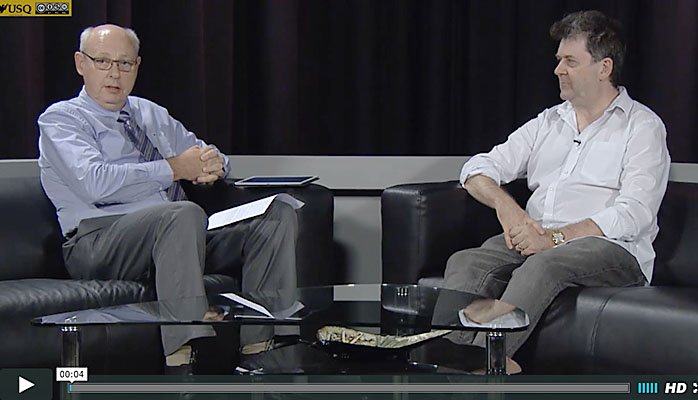I recently had the pleasure of interviewing Associate Professor Steve Wheeler from Plymouth University in the UK on his thoughts about the future of the VLE (virtual learning environment) and how Social Media now fits within the Higher Education picture moving forward.
As with many of us, Steve started his journey with social media playing with wiki’s, blogs and by mixing and sharing content. However, like many good educationalists h/we don’t stop there, but h/we continue to evolve. So, just as the theories of learning have rapidly evolved over the last 50 years (Shuell, 2016), so have the opportunities for us as educators to take-hold of the affordances offered by the ubiquitous web and social media.
Take for example what is happening with Pokémon Go right now and the notion of augmented reality. There are so many options at our finger tips, not to capture a Pokémon in this case, but to harness the excitement of ‘the hunt’. But why has this been so popular of late? John Warner poses five reason (paraphrased):
- It’s popular,
- It’s fun,
- It’s on your phone,
- It utilizes augmented reality. So if reality is broken we can fix it by augmenting it, and
- It’s a disruptive technology, just like Twitter, Snapchat, Instagram, MOOCs, adaptive software, badges, etc., have been in the past and have now become, in many cases, part of the teaching norm.
But Pokémon is not the issue here; it’s how we can adapt to the fast changing pace of technology, to better augment our teaching. So similarly, if we can create educational experiences that fit the above five categories maybe will will strike gold (only kidding). For as Steve points out in this interview, teachers who are connected become global educators, they are able to tap into a huge volume of really good knowledge and funky ways of doing things. The flip-side of this of course is if you are not connected, how on earth can you keep-up, and if your not keeping up, how are we being relevant to the next generation of learners.

What are we taking about here? Well I think what we are really talking about here is an extension of what we lovingly called Socio-Constructivist learning; Paragogy, or some call it Heutagogy. These are models of learning that are self-determined, often peer-led, not necessarily based on a central point of contact (the LMS), and are often non-linear. So our challenge is to talk, listen, interact with our colleagues to share and discover new way of applying these approaches to our teaching.
Does that mean that’s the end of our beloved VLE or LMS? Steve would say ‘not yet’, and I agree with him. What it does mean is that the LMS needs to be agile enough to evolve reasonably quickly, and to meet head-on the advent of these newer learning theories that preference the process of learning over the content associated with learning. In other words, embracing the democratization of knowledge and openness. Or in practice, as we now see in many cases, that the LMS is becoming only a small part of the bigger VLE picture for our institutions.
In conclusion, Steve suggests that it is the ‘immediacy’ of being able to connect with others in the greater learning community, through social media, is the important aspect that all teachers now need to be involved in.